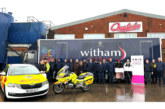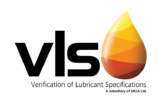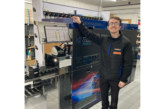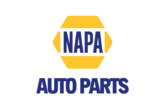
The Competition and Markets Authority (CMA) is launching its consultation on draft guidance to accompany the Motor Vehicle Block Exemption Order (MV-BEO – previously the MV-BER).
This follows on from the CMA’s final recommendation to the Secretary of State at the Department for Business, Energy and Industrial Strategy regarding the retained MVBER.
The CMA is seeking responses to this consultation by 16 May 2023, 5:00pm.
Mark Field, IAAF Chief Executive said: “A vehicle is now an ‘IT system on wheels’, with the vehicle manufacturer as ‘system administrator’ with the corresponding ability to control all aspects of access, functions and data to all their competitors. Without robust and detailed legislation to define the technical requirements, it will simply allow the vehicle manufacturers to dominate and control the market, including the significant distortion of the abilities of competing vehicle-related service and mobility service providers.”
Existing legislation supports the abilities of independent operators in the automotive aftermarket to provide competitive service offers. This legislation includes MV-BER (Motor Vehicle Block Exemption Regulation) that claims to provide the basis in competition law for workshops (both those contracted to vehicle manufacturers and independent operators) to access the same tools, equipment, technical training and most importantly, replacement parts (both OEM and ‘matching quality’ parts) to provide competing service offers. This is complemented by the vehicle type approval Regulations that include the ‘repair and maintenance’ (RMI) requirements, but that need to provide additional technical requirements, frameworks, ‘updates to technical progress’ and revised definitions.
However, both the MV-BEO and the type approval regulations require secondary legislation to describe these technical requirements in detail, not only to clarify the obligations of a vehicle manufacturer under competition law (MV-BEO), but also as the basis for the self-declaration of conformity as part of a vehicle’s original type approval.
Since the MV-BER and type approval RMI legislation has been in place, vehicle design and technology is said to have changed and has led to not only the vehicle manufacturers entering the Aftermarket as service providers in their own right, but with the vehicle manufacturer controlling the remote access to their vehicles, existing business models have significantly evolved, and more advanced business models are being implemented.
However, although the secondary legislation is being revised in Europe to reflect these technical requirements and the important aspects that need to be addressed to ensure that equal abilities to develop and implement competing services remain possible, this must also be done in Great Britain to avoid regulatory divergence with the EU and Northern Ireland, who will follow the EU requirements as part of the Windsor framework and the rest of Great Britain.
Today’s vehicles are highly sophisticated and contain modern systems and interfaces that are used to access the vehicle, its resources, functions and data (e.g. telematics that provides remote access to a vehicle). This also creates the need to have (cyber) secure vehicles, which IAAF & UK AFCAR fully supports, but legislation must ensure that this is not used by vehicle manufacturers to impose a monopoly to control all aspects of the diagnosis, service and repair of the vehicle. There is already evidence of ‘abuse of dominant position’ and the arbitrary implementation of the ‘rights and roles’ of restricted access to the vehicle and its data by vehicle manufacturers.
The IAAF & UK AFCAR claim they are working hard to ensure consumer choice through competition is protected to ensure freedom of service and repair for both motorists and independent automotive aftermarket.







